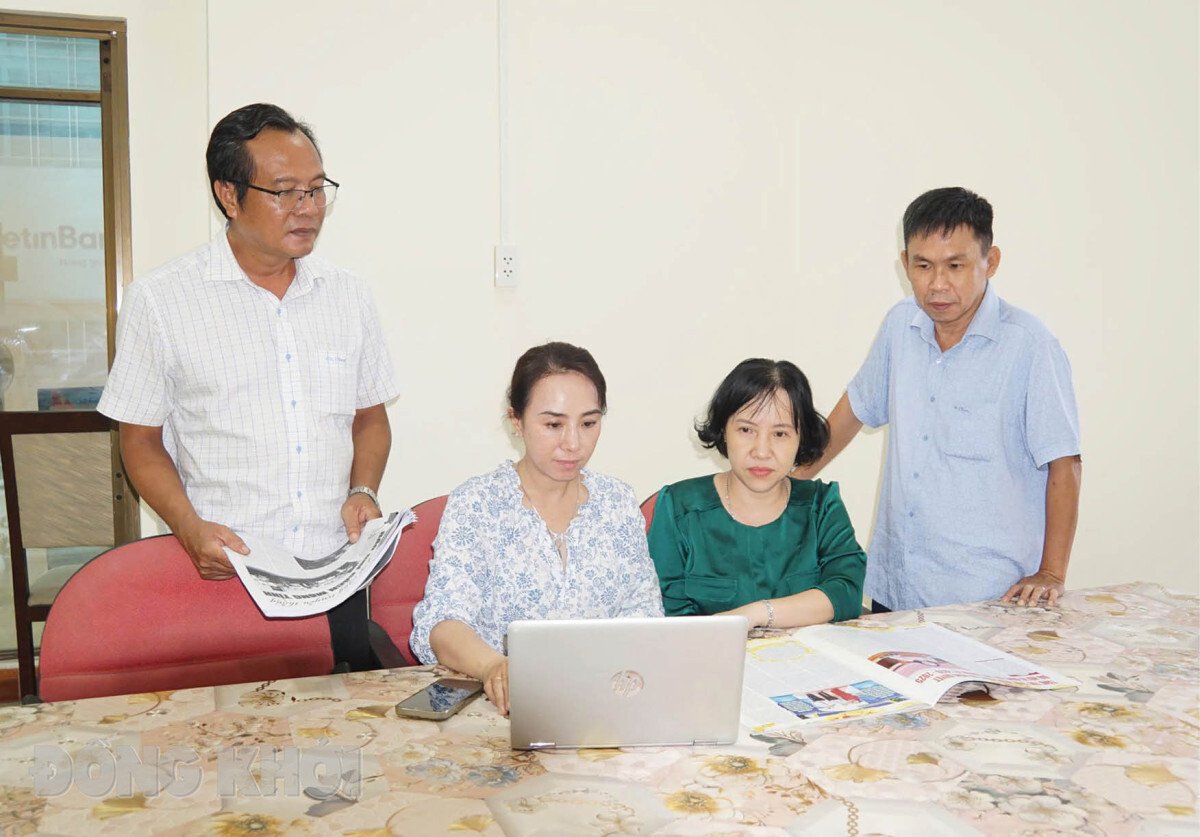
The Secretariat of Dong Khoi Newspaper handles post-production of printed newspaper. Photo: Anh Nguyet
Post-production in journalism is the processing stage after collecting information - including editing, verifying, correcting, shaping, layout, design, publishing, distribution... People who undertake this job often do not appear in public, but they are the ones who contribute to perfecting and "shaping" the work in the most perfect way possible, bringing the press product "out of the oven", introducing it to readers near and far.
In the basic process of all types of journalism in general, the editor is the first person to receive the manuscript, edit the content to ensure accuracy, objectivity and clarity. Next is the layout designer to help the article become eye-catching and easy to read for print and electronic newspapers. With television, the post-production editor processes sound, images, cuts and integrates technical elements to bring the complete news to the public as the most polished product.
The post-production team is an indispensable part of the content production process of Ben Tre Radio and Television Station. They undertake many important tasks to ensure the quality, professionalism and attractiveness of the program before broadcasting. Ensuring image and sound quality such as: Post-production helps improve image quality, optimize color and light. Edit and balance sound to ensure clarity, helping to convey content more effectively. Synchronize images and sounds, avoid technical errors during broadcasting. Create visual effects and graphics to make the program vivid and accessible.
Mr. Nguyen Thai Loc - Engineer - Head of Broadcast Transmission - Technical Department of Ben Tre Radio and Television Station, who has 17 years of experience in the technical department, shared: The responsibility of post-production work is also quite heavy, always requiring ensuring time, high accuracy, constantly updating technology and requiring smooth cooperation with other departments. "Although not standing on stage, the post-production team is considered the silent journalists who contribute to the success of a press product", Mr. Nguyen Thai Loc expressed.
When it comes to journalism, people often talk about reporters and journalists who are the authors of the work, but few people mention editors - those who patiently read, detect and correct errors to perfect the work in the best way. To have a good journalistic work, the author must go through the process of nurturing ideas, collecting information, processing data and documents, conceiving and shaping a complete work. However, despite careful investment, journalistic works cannot avoid certain errors. Therefore, in order for journalistic works to be of high quality and well received by a wide range of readers, it is necessary to have people to edit and proofread for the author and the editorial office. The people who do that job are none other than the editorial team of press agencies.
The editor is the one who discovers the "gaps" in the ideological content of the article, and has the duty to contribute to censorship, prevent, and not allow pragmatic, narrow-minded thoughts, and " peaceful evolution" tricks of hostile forces to infiltrate, propagate, and incite into journalistic works.
Deputy Editor-in-Chief of Dong Khoi Newspaper Huynh Thi Kim Thi said: “Editor is a very difficult profession. It requires hard work and silent sacrifice from those involved. In the process of performing tasks, editors must be impartial and objective, always putting the quality and reputation of the editorial office first; must not, for any reason, affect the reputation and quality of the newspaper; at the same time, regularly practice journalistic ethics, improve all aspects of qualifications, and be worthy of the role of the “Midwife” of journalistic works.”
At Dong Khoi Newspaper, the morasse department (editing, correcting spelling errors) is also an indispensable step in the process of publishing printed newspapers. Ms. Huynh Thi Lan Chi - the morasse department of Dong Khoi Newspaper has been working in this job for nearly 14 years. She shared that in the early days when she first "got into" the "morasse profession", she was bewildered, fumbling with the words, reading and reading until her eyes were dizzy, then self-conscious and did not dare to edit anything in the article, for fear of correcting the wrong thing. Constantly learning from her predecessors, summarizing experience through each issue, Ms. Lan Chi has increasingly fulfilled her role, contributing with the Editorial Board to remove redundant words, perfecting sentences to make them clearer; accurately comparing errors on printed copies. To better serve her work, she enrolled in a graduate program in Cultural Studies to further develop her knowledge for her career.
“Reading morasses is a job that requires “staying at home” and seems monotonous and boring, but every day, morasse readers like me are given more information, learn from writing and editing to gain more experience, and gradually enrich my knowledge through each article by reporters and contributors,” Ms. Lan Chi confided.
Following the current development trend, the press team in post-production must also ensure professionalism and creativity such as applying new technologies in film editing and graphics, helping the program meet modern standards. Adjusting content formats to suit traditional broadcasting and digital platforms. Converting content to suit online platforms such as YouTube and social networks. Supporting optimization to help the program reach a wider audience. Improving the way content is presented, helping the program attract audiences.
It can be said that the post-production staff are not only the people behind the scenes but also the ones who contribute to the success of a program. They help turn raw content into a professional, neat, attractive and highly influential product. Honoring the journalists in post-production is also honoring the value of honest, persistent and quiet labor. Because no light can shine brightly without the patient hands behind the scenes lighting the lamp.
Moonlight
Source: https://baodongkhoi.vn/tham-lang-phia-sau-mat-bao-20062025-a148464.html


![[Photo] General Secretary To Lam chairs the 14th Central Military Commission Conference](https://vphoto.vietnam.vn/thumb/1200x675/vietnam/resource/IMAGE/2025/6/20/a9d25fc6dd664fb9a3757502f32e5db0)










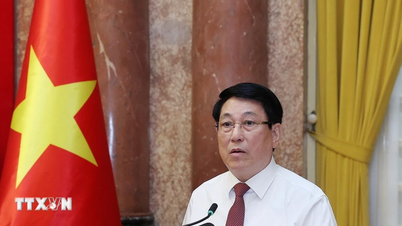











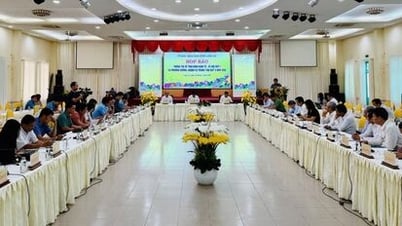







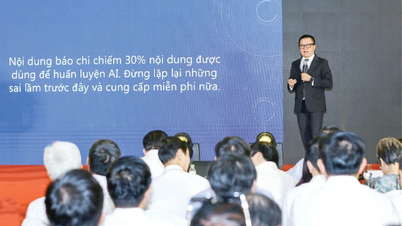
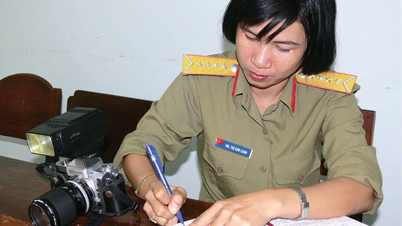

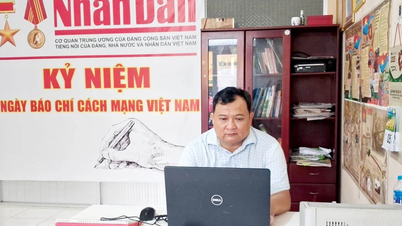


























![[Maritime News] Wan Hai Lines invests $150 million to buy 48,000 containers](https://vphoto.vietnam.vn/thumb/402x226/vietnam/resource/IMAGE/2025/6/20/c945a62aff624b4bb5c25e67e9bcc1cb)












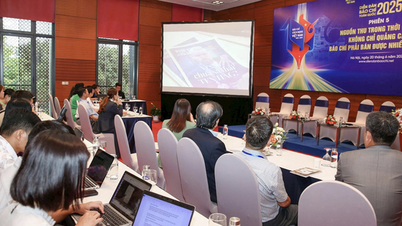






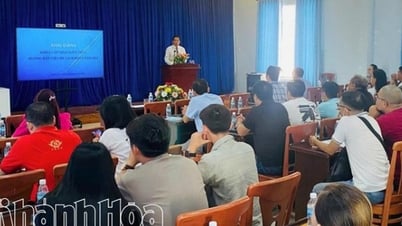






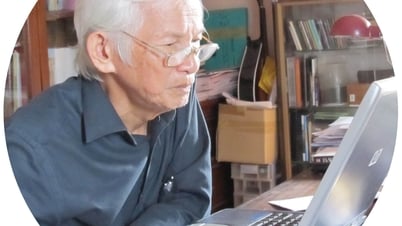















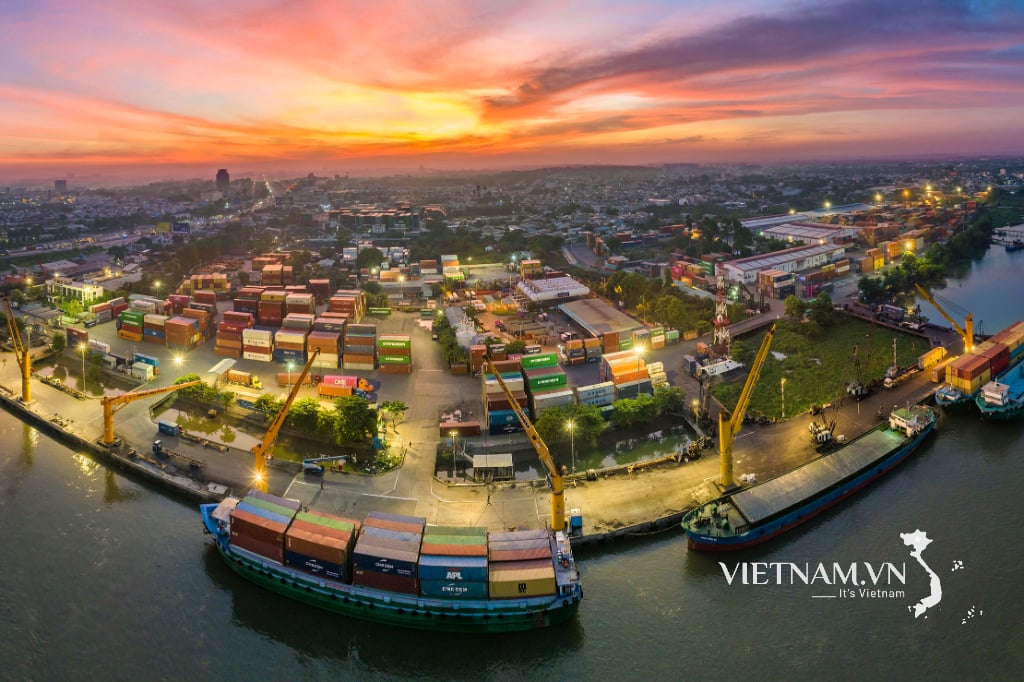
Comment (0)